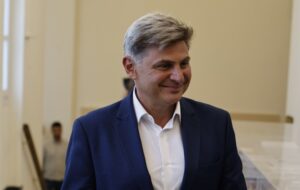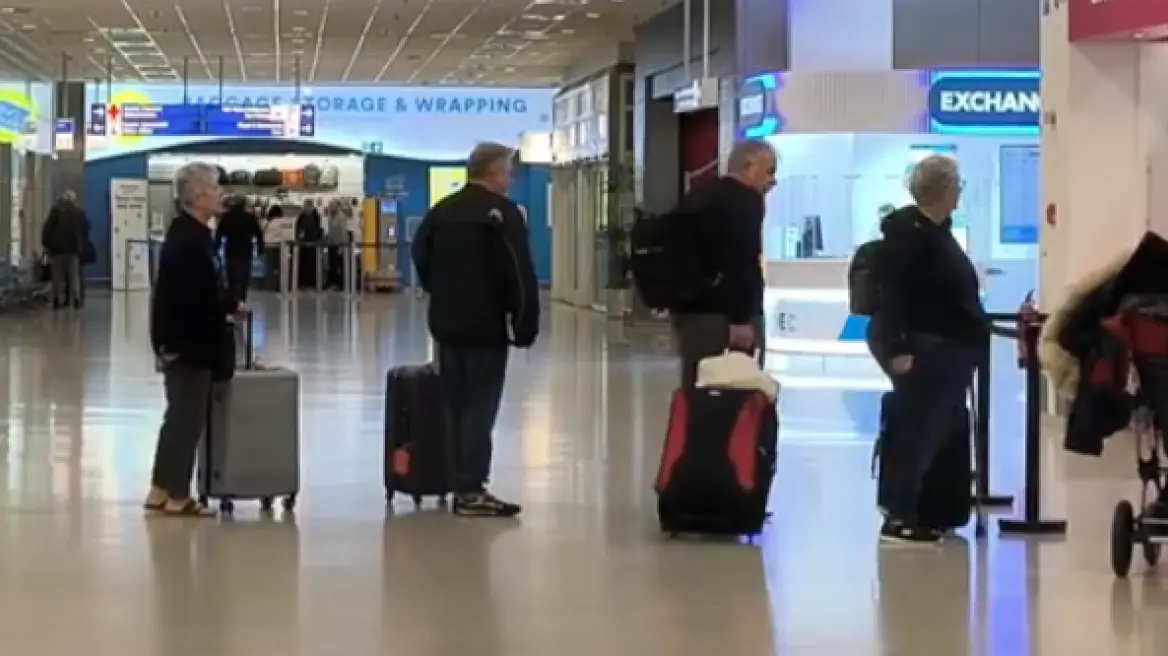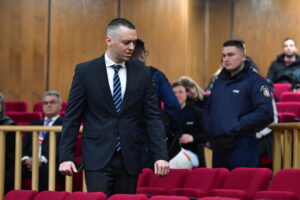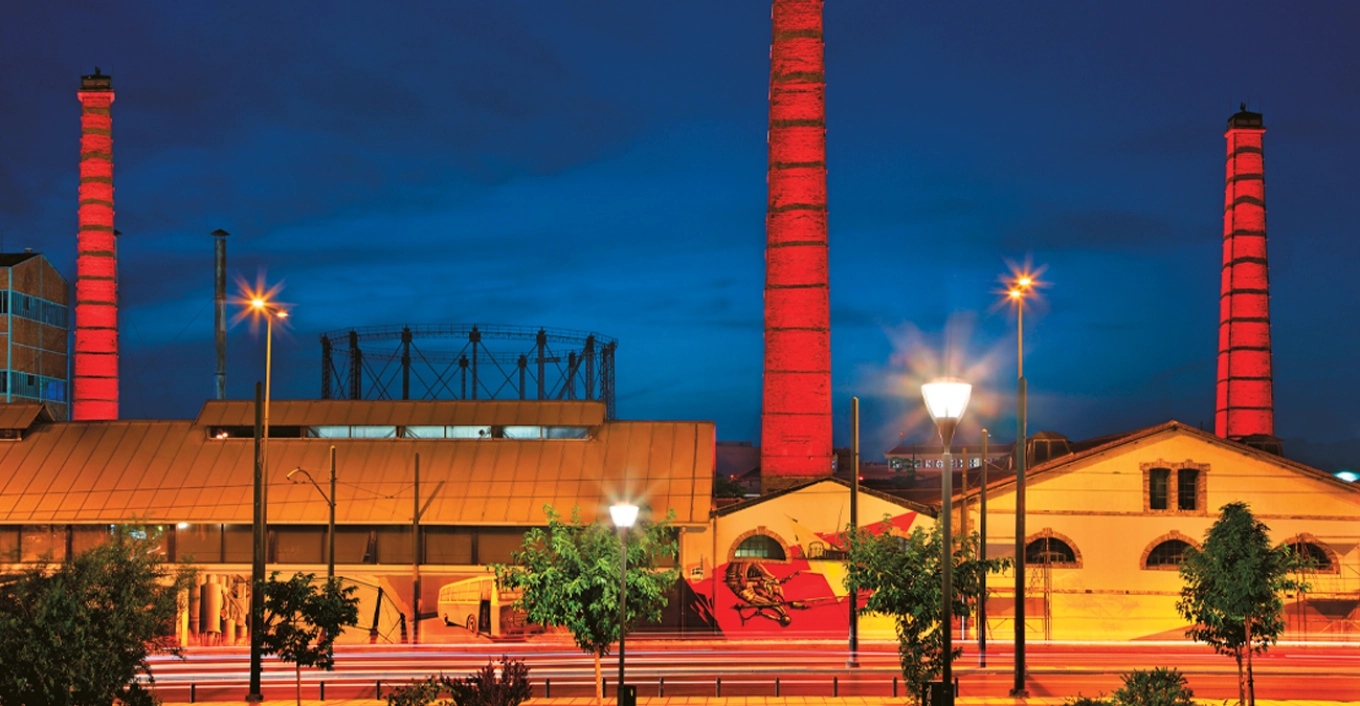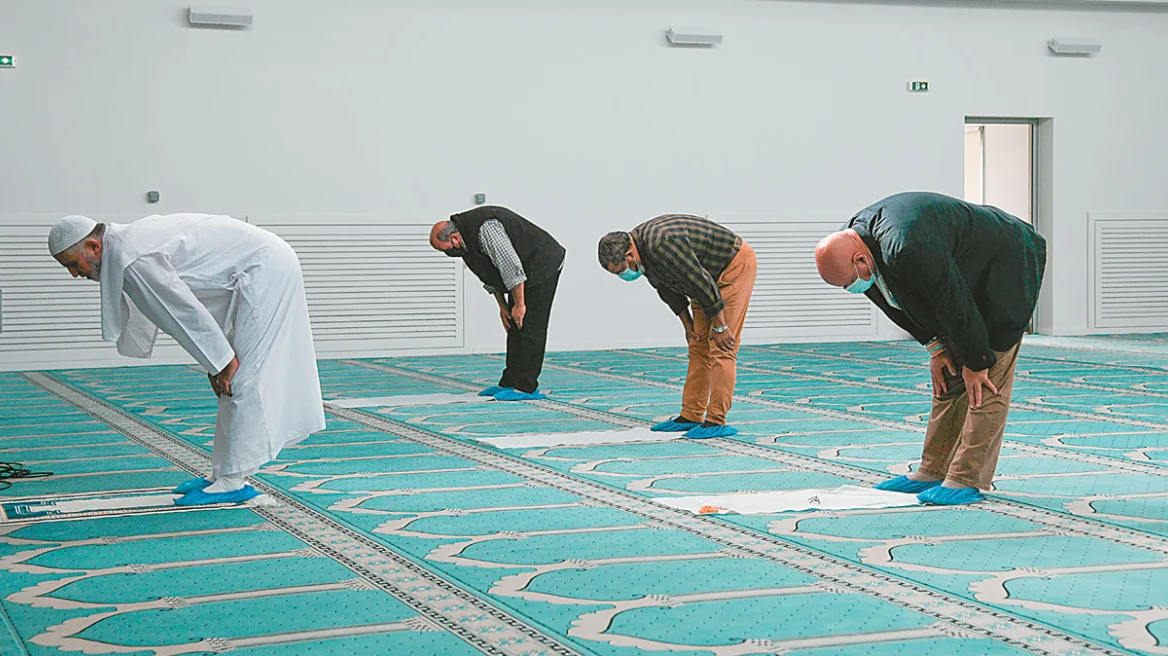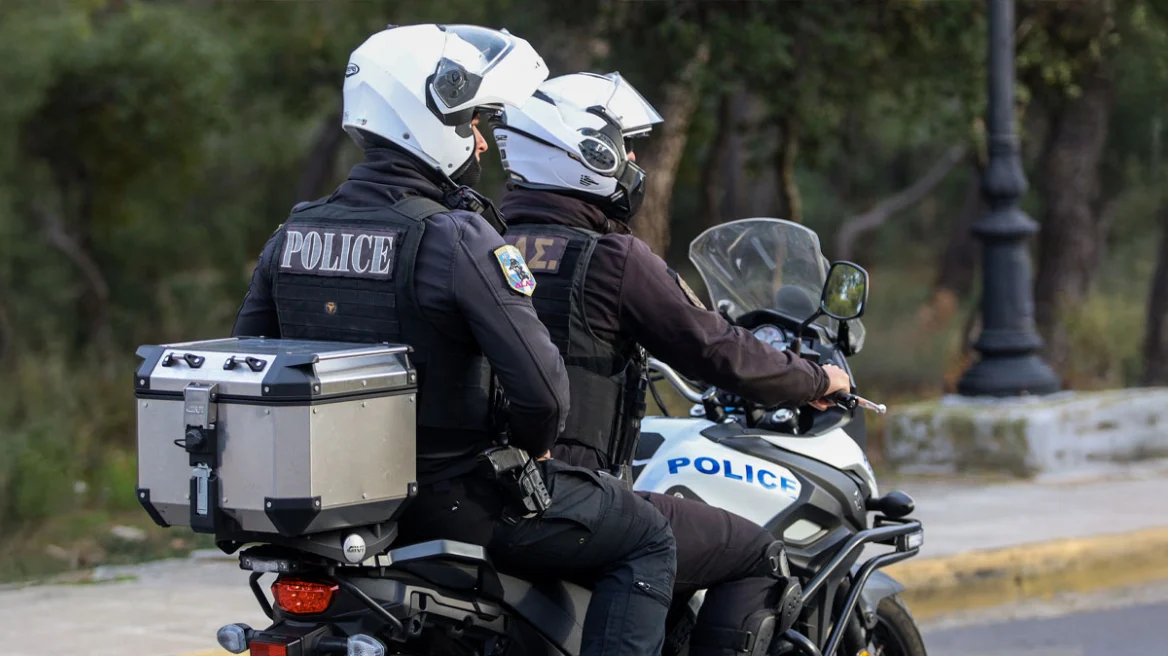“The slogan is ‘SYRIZA Ahead.’ It’s not about Faradouris or me; it’s about prioritizing ‘we’ over ‘I’ in our internal affairs. For too long, the ‘I’ has dominated, and we must shift our focus back to ‘we’ and our political house. SYRIZA Ahead means that SYRIZA can become the leading force for progressive and democratic initiatives in the country, stepping forward as the leader of political developments,” said Nikos Farantouris in his initial remarks following his announcement of candidacy for the SYRIZA presidency.
Farantouris continued, emphasizing the need to “change the agenda.” He urged opposition to regressive policies that led to the closure of hospitals and universities and the erosion of democratic institutions. He expressed the importance of being at the forefront of developments, rather than becoming mired in introspection, criticism, and gossip.
In a follow-up comment, he stated, “Because you hit me in Brussels, I’m here. I would have been with you in the studio today, but we are expecting Mrs. Karystianou in our Eurogroup to address the tragedy at Tempi. We have not forgotten. We are present in Europe, Greece, and everywhere else to highlight omissions, uncover problems, and seek solutions, ensuring that those who cannot find justice elsewhere can find it through us. SYRIZA Ahead embodies this mission.
“It’s not about two separate issues; it’s about unity. Parliamentarism does not end at the national level or the European Parliament. There is no ‘us up there’ and ‘them down here,’ a narrative the government tries to promote regarding justice—‘ Greek justice’ versus ‘European justice.’ It’s important to remember that 80% of the legislation passed in the Greek Parliament has been decided in the European Parliament and integrated into Greek law through directives, laws, and presidential decrees,” he elaborated when asked how he would proceed if elected president of SYRIZA.
Farantouris stressed that his role as a member of the European Parliament extends beyond Brussels. “My parliamentary status involves a constant presence in Greece and engagement with political developments across the region. The leader of a party, whether in the national or European Parliament, can significantly contribute to the party’s outreach,” he emphasized.
He further noted, “Many leaders of contemporary European parties, even those challenging the governance of their countries, are active MEPs. For instance, the conservative head of the opposition in Hungary, whom I can discuss, is not a fascist but a legitimate political figure opposing Orbán’s government. Iglesias from Podemos was also an MEP. This demonstrates that a party leader, especially an MEP, can enhance the party’s visibility and effectiveness.”
“Now, we must tackle the significant issues,” he urged. “SYRIZA currently lacks extroversion and a robust political confrontation. We need to address major decisions coming from outside, as well as critical internal issues. We must seek solutions, especially to pressing matters like rising costs, democratic institutions, demographics, housing, and individual policies. Everyone is looking to the European reality for answers. The government sends letters, while we propose legislative solutions, such as those tabled last week regarding the Recovery Fund. We recently learned that the Greek government failed to notify the beneficiaries,” said Nikos Farantouris.
“I am committed to fostering a unifying atmosphere. I aim for my speech and approach to be inclusive and political, not divisive. I did not enter politics for personal gain; my career as a university professor and lawyer spans 25 years. My candidacy was not a spur-of-the-moment decision, but a thoughtful choice after considerable deliberation and encouragement from friends and party members across Greece. I want to instill a political tone in this process that deserves serious attention, rather than trivial public discourse. SYRIZA should shift the focus from secondary issues to the political.”
He concluded, “Let’s hold a debate—we must discuss these matters. I respect all my fellow candidates and believe that debate fosters a comradely and political atmosphere. I’ve never personified confrontation regarding political issues.”
Ask me anything
Explore related questions
